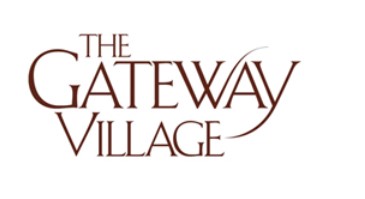In the bustling and competitive landscape of Salt Lake City, having a strong online presence is crucial for businesses of all sizes. Whether you’re a small local shop or a growing enterprise, mastering Search Engine Optimization (SEO) can help you stand out in the digital marketplace. This comprehensive guide will walk you through the essentials of SEO, why it matters for businesses in Salt Lake City, and how you can leverage it to attract more customers and grow your brand.
Why SEO Matters in Salt Lake City
Salt Lake City is a vibrant hub with a diverse economy, home to industries ranging from tech startups to outdoor recreation. With a growing population and increasing internet usage, local consumers are turning to search engines to find products and services. Here’s why SEO is vital for your business:
- Increased Visibility: SEO helps your website rank higher on search engine results pages (SERPs), making it easier for potential customers to find you.
- Targeted Traffic: By optimizing for local search terms, you attract customers who are specifically looking for businesses like yours in Salt Lake City.
- Cost-Effective Marketing: Compared to traditional advertising, SEO provides a high return on investment by bringing in organic traffic without ongoing ad spend.
- Builds Credibility: Higher search rankings signal to users that your business is reputable and trustworthy.
Key Components of SEO for Salt Lake City Businesses
To effectively optimize your website for search engines, focus on the following key components:
- Keyword Research:
- Local Keywords: Identify keywords that include “Salt Lake City” or “SLC” to capture local traffic. For example, “Salt Lake City restaurants” or “SLC tech companies.”
- Long-Tail Keywords: Use specific phrases that potential customers might search for, such as “best hiking gear in Salt Lake City.”
- On-Page SEO:
- Title Tags and Meta Descriptions: Ensure your title tags and meta descriptions include relevant keywords and accurately describe your content.
- Header Tags: Use header tags (H1, H2, H3) to structure your content and include keywords where appropriate.
- Content Optimization: Create high-quality, informative content that addresses the needs and interests of your audience. Use keywords naturally throughout your content.
- Local SEO:
- Google My Business: Claim and optimize your Google My Business listing with accurate information, including your address, phone number, business hours, and photos.
- Local Citations: Ensure your business information is consistent across online directories such as Yelp, Yellow Pages, and local chamber of commerce websites.
- Customer Reviews: Encourage satisfied customers to leave positive reviews on Google and other review sites to boost your credibility and search rankings.
- Technical SEO:
- Mobile Optimization: Ensure your website is mobile-friendly, as a significant portion of local searches are conducted on mobile devices.
- Site Speed: Improve your website’s loading speed to enhance user experience and reduce bounce rates.
- Secure Website: Use HTTPS to secure your website and protect user data.
- Link Building:
- Local Backlinks: Obtain backlinks from reputable local websites, such as local news sites, bloggers, and business directories.
- Guest Blogging: Write guest posts for local blogs and websites to gain exposure and backlinks.
Leveraging Social Media for SEO
Social media can indirectly impact your SEO efforts by driving traffic to your website and increasing brand awareness. Here’s how to use social media effectively:
- Engage with the Community: Participate in local online communities and forums to connect with potential customers and other local businesses.
- Share Content: Regularly share your website content, such as blog posts and special offers, on your social media platforms to drive traffic and engagement.
- Collaborate with Influencers: Partner with local influencers to reach a broader audience and build credibility.
Monitoring and Adjusting Your SEO Strategy
SEO is an ongoing process that requires regular monitoring and adjustments. Use tools like Google Analytics and Google Search Console to track your website’s performance and identify areas for improvement. Pay attention to metrics such as organic traffic, bounce rates, and keyword rankings.
- Analyze Your Competition: Keep an eye on your competitors’ SEO strategies and look for opportunities to outperform them.
- Update Content Regularly: Refresh your website content periodically to keep it relevant and engaging for users.
Conclusion
Investing in SEO for your Salt Lake City business can significantly enhance your online presence, attract more local customers, and ultimately drive growth. By focusing on local SEO strategies, optimizing your website, and leveraging social media, you can stay ahead of the competition and ensure your business thrives in the digital age.
Remember, SEO is a long-term commitment, but with patience and persistence, the results can be transformative. Start optimizing your website today and watch your business soar to new heights in Salt Lake City!



